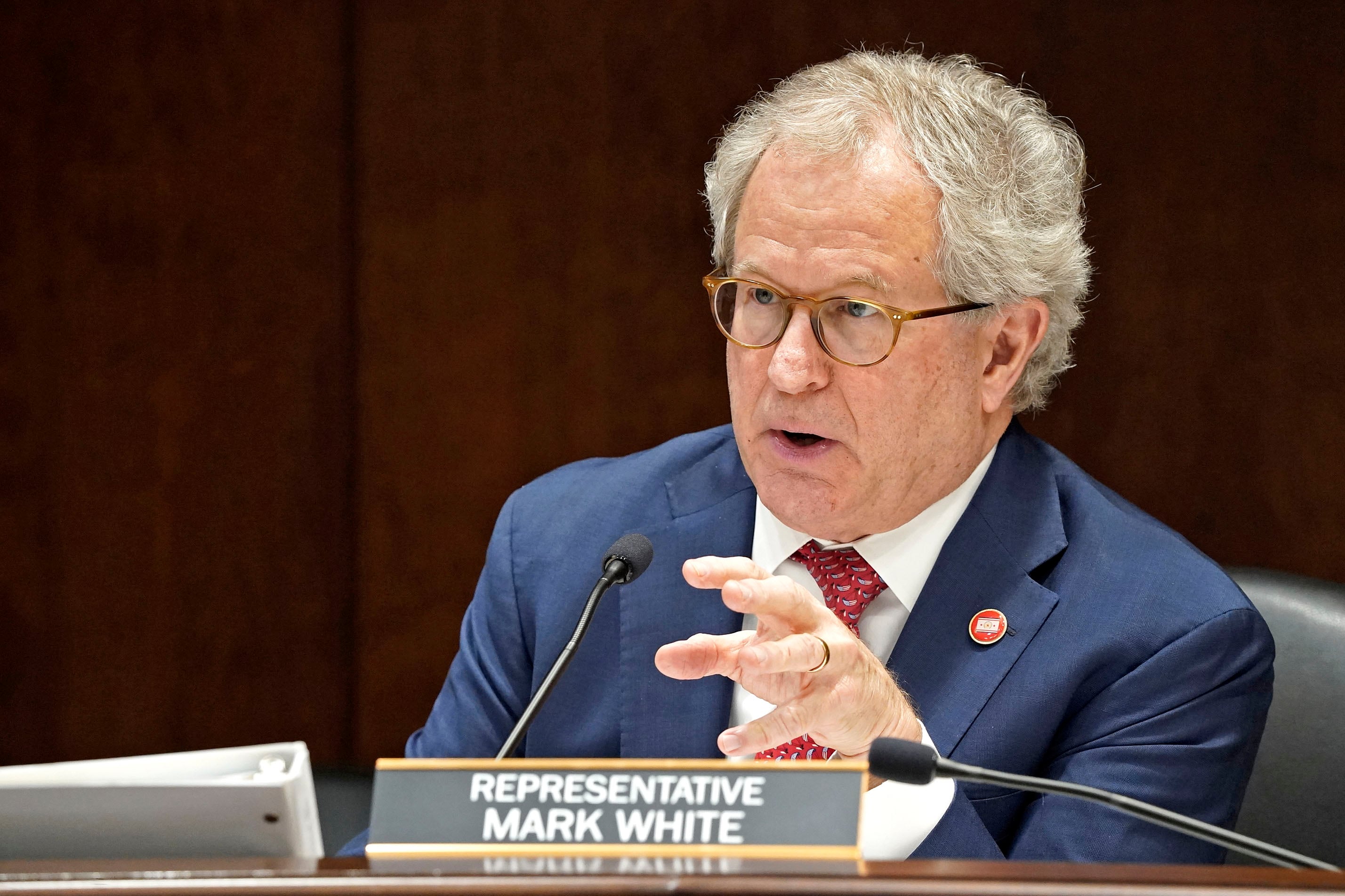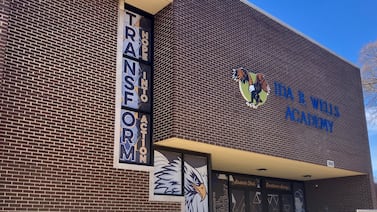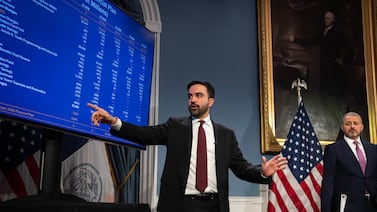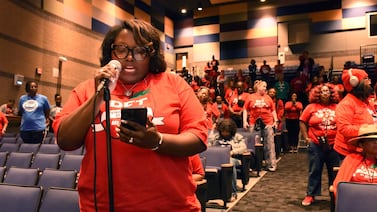Sign up for Chalkbeat Tennessee’s free newsletter to keep up with statewide education policy and Memphis-Shelby County Schools.
The two Republican lawmakers who introduced bills this spring to change who controls Memphis-Shelby County Schools say the push for a state takeover isn’t finished.
Rep. Mark White and Sen. Brent Taylor told WKNO/Channel 10’s “Behind the Headlines” Friday that their legislation to establish a state-appointed “board of managers” overseeing the district will be fast-tracked to pass this spring.
That’s because the lawmakers’ two versions of the legislation – which include some key differences – each passed one chamber by April, then stalled. Now, Taylor and White said they’re waiting for results from the $6 million independent audit of the district, which started this month, to best inform how they’ll combine the bills come January.
“They’re sitting there fully ready to go,” White said. “All we have to do when we go back in January, if the timing is right, is just line them up, kinda like the Big Beautiful Bill that Congress just did.”
White’s version gives the state-appointed board power over elected MSCS board members. Taylor’s puts the state in an advisory role, but gives the commissioner of education authority to remove MSCS members who are “obstinate to the change,” he said.
Taylor also said he thinks the state’s largest school district will ultimately need to be broken up into smaller districts in order to operate effectively.
“We’ve got a district that is too big; it’s unmanageable,” he said.
District officials didn’t respond to requests for comment before publication.
The lawmakers’ comments, and the scale of the changes they discussed, set the stage for another fight over the district’s future in 2026.
Both White and Taylor said the reason for state control boils down, mainly, to academic results in the Memphis-Shelby County district. The push for state takeover also came on the heels of the board’s sudden decision to oust former Superintendent Marie Feagins, which sparked demands for more accountability.
MSCS students improved on state tests for the fourth year in a row, with even larger reading and math score gains for the district’s youngest learners. Just over 29% of students in grades 3-5 passed in reading this year, up from 26% in 2023-24.
Statewide, 41.7% of third graders hit the mark. Fourth and fifth graders saw 47.7% and 40.7% proficiency rates, respectively.
Taylor said the “small incremental increases” from MSCS aren’t good enough.
“We don’t expect them overnight to get to the state average,” he said. “But we need to be moving and headed in the right direction.”
The Memphis and Shelby County school systems merged in 2011. State lawmakers then passed a bill allowing surrounding suburban neighborhoods to break off and form their own districts, with significantly smaller and less diverse student populations.
Bri Hatch covers Memphis-Shelby County Schools for Chalkbeat Tennessee. Reach Bri at bhatch@chalkbeat.org.





